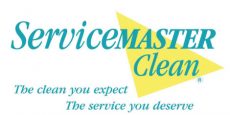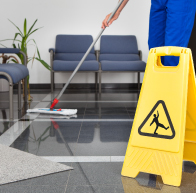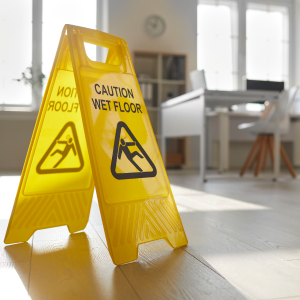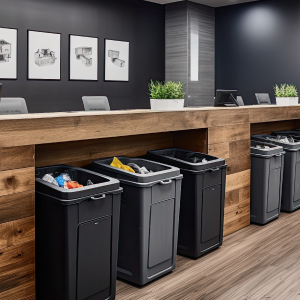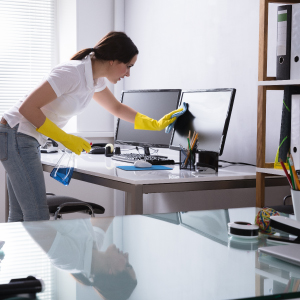The floors in commercial premises receive a lot of wear and tear from clients, employees, and other workers. Although cleaning the floors should already be part of the provision made by contract cleaners, winter can provide particular challenges for commercial flooring. Although requirements will inevitably differ from premises to premises, businesses can work to mitigate the worst damaging effects of winter weather.
- Floors in commercial premises are subject to a lot of wear and tear.
- Winter can increase the potential for damage done to commercial flooring.
- Businesses can try to protect floors from the damaging effects of winter.
During winter, the floors in offices and commercial premises are likely to have the same – if not more in the run up to Christmas – amount of wear as the rest of the year. However, because salt and sand is routinely spread on pavements as the temperature drops, inevitably they are brought into the office. And even when it isn’t particularly icy, slush, mud, rain and general grime increase as a result of the seasonal weather.
Impressions count, and it’s important for businesses to maintain a professional appearance so they want to avoid the negative impression of a dirty floor as soon as people enter. Firstly, it won’t impress clients and secondly, it won’t help staff morale.
So, how should businesses manage winter floor care?
Most of the dirt on people’s feet is concentrated when they first walk through the entrance and it’s thought that the removal of most of the floor’s surface takes place within the first 2 meters. Putting a large, thick mat at the entrance should help trap a lot of the water, dirt, and salt, going some way towards mitigating damage to the floor.
Although washing the floor more often sounds counterintuitive as exposes flooring to more water and liquid at what is already a wet time of year, more frequent washing dilutes the amount of water collecting from sleet and rain, reducing the liklihood of salt and watermarks.
Professional cleaners will use the right tools for the job, first cleaning the floor with the appropriate products and then using the right equipment to absorb and remove any lying water or liquid. They will also deep clean where and when necessary, often using hot water extraction methods, helping to restore commercial flooring to its original state.
Different businesses will have different priorities. For example, matting at the entrance of a warehouse is likely to be mainly functional, whereas the matting in an exclusive office block will have aesthetic considerations as well as practical whereas medical and healthcare facilities have the additional requirement for specialist floor cleaning as specific hygiene protocols will be a key consideration.
By considering how each area of a commercial premises is used, what the industry-specific cleaning requirements are, and working within budget considerations, an experienced, professional cleaning service will ensure that commercial floors are kept in optimum condition as part of their cleaning process throughout winter and beyond.
